Jeffrey Conzelmann, 56, has been a pharmacist at Spectrum Health for 31 years.
Not until he became a patient himself, however, did he truly understand what it meant to be on the receiving side of health care.
“Being diagnosed with T-cell leukemia has been an eye-opening experience,” Conzelmann, of Spring Lake, Michigan, said. “I gained a new appreciation for what patients go through. I thought of myself as compassionate, but this experience has given me a new level of understanding.”
Conzelmann’s story begins on the run.
Training alongside his brother, Tom, the two were preparing for a 50-kilometer trail run in spring 2020.
“I had been a runner for a long time,” he said. “But I noticed that it was getting harder to keep up my usual pace. Tom and I had this conversation about aging—maybe I was just getting older and slowing down.”
Just to be sure, Conzelmann scheduled a physical with his doctor.
He appeared healthy. His doctor encouraged him to add weight training to his exercise regimen to improve his core strength.
“He asked me to come in for bloodwork, though,” Conzelmann said.
He scheduled those tests in October 2020. When the results came in from the bloodwork, Conzelmann’s doctor gave him a call.
The white blood cells in his sample were elevated. His doctor asked him to come in for a second test.
“This time we did a blood test differential,” Conzelmann said.
A blood differential test measures the amount of each type of white blood cell in a person’s body. In that test, Conzelmann’s lymphocytes—two main types of white blood cells that include B- and T-cells—showed an elevation in T-cells.
T-cells help the body detect and fight off infection or illness. When elevated, it can indicate that the body is locked in a battle.
“I was on vacation in Gatlinburg with my wife, Janet, and my parents when I got the call from my doctor,” Conzelmann said. “‘I think you have something brewing,’ he said. And he wanted to do more tests.”
The diagnosis came in December 2020. He had T-cell prolymphocytic leukemia.
His doctor sent him to Spectrum Health Lemmon-Holton Cancer Pavilion.
Sobering diagnosis
Sami Brake, MD, program director of the adult bone marrow transplant program at Spectrum Health, met with Conzelmann for more tests. He gathered a team of specialists.
“T-cell prolymphocytic leukemia, or T-PLL, is an extremely rare and typically aggressive malignancy,” Dr. Brake said. “Because of that fact, it is important that patients are evaluated at a highly experienced cancer center.
“This is particularly important because the treatment of T-PLL is very specific and not used for other T-cell malignancies, and an incorrect diagnosis may result in a poor outcome.”
T-cell leukemia can be hard to diagnose, Dr. Brake said.
“Many of these diagnoses get missed, because it is hard to detect. But Jeff was correctly diagnosed,” he said.
Despite the diagnosis, Conzelmann said he felt fine.
“I didn’t feel sick,” he said. “But we did more tests, including a CT scan and a pulmonary evaluation. I had an infiltration in the right lower lobe of my lung.”
In December 2020, he underwent bone marrow biopsy.
“Right away, I was doing all kinds of research in medical journals,” Conzelmann said. “As a pharmacist, I had the advantage of having access to all that.”
“We found nodules on Jeff’s lungs,” Dr. Brake said. “Biopsies confirmed that his lungs were involved with T-cell leukemia, indicating a very aggressive disease.”
“I was still feeling positive,” Conzelmann said. “I didn’t have any major involvement in liver or spleen, none of that. I was calm. I knew we could control this.”
Conzelmann began immunotherapy using Campath, a drug specifically used for this type of cancer. The thrice-weekly infusions worked within a matter of a few weeks—the nodules in his lungs cleared.
He continued the infusions for 12 weeks.
Even as he progressed, Conzelmann and his care team began to discuss a stem cell bone marrow transplant to eliminate the leukemia.
It was his best option.
“My brother Tom was a 100% match,” Conzelmann said. “You generally should be under age 40 for a marrow donation, and Tom is four years older than me. But he’s healthy, and a match with a brother gives me my best chance.”
Perfect match
While doctors extracted Tom’s bone marrow, Conzelmann underwent more chemotherapy treatments with the goal of adjusting his immune system to the point it would not reject the donor marrow.
Doctors admitted Conzelmann to Spectrum Health Butterworth Hospital on June 2, 2021, and began ablative chemotherapy treatments.
On June 8, he received the bone marrow transplant.
“It was comfortable, much like a blood transfusion,” Conzelmann said. “It took about an hour. I was discharged on June 21 with daily home fluid and electrolyte infusions.”
He encountered some additional challenges, and he required a week-long hospitalization, but with some adjustments to his treatment he was back on the road to healing.
“It really has been quite a journey, but I have had lots of support along the way,” Conzelmann said. “Janet was my rock and coordinated most of my care initially.
“Family and friends were so supportive and made it less taxing. I also can’t say enough about my care teams at all levels. From the staff at the bone marrow transplant clinic, to hospital staff and all my providers, they all created a positive environment for me to heal.”
Conzelmann’s one-year anniversary of good health came in June 2022.
He and his wife planned a cross-country trip in an RV to celebrate.
“I went on disability when this happened, but I plan to return to my work at Spectrum Health eventually,” he said. “I always tell people how fortunate we are in this community with the excellent health care and the dedicated providers we have.”
Today, the two Conzelmann brothers are running again, side by side.
“You know what they say,” Conzelmann said. “It’s not a sprint, but a marathon. We’re running it together. Tom likes to remind me now: I have his good genes.”
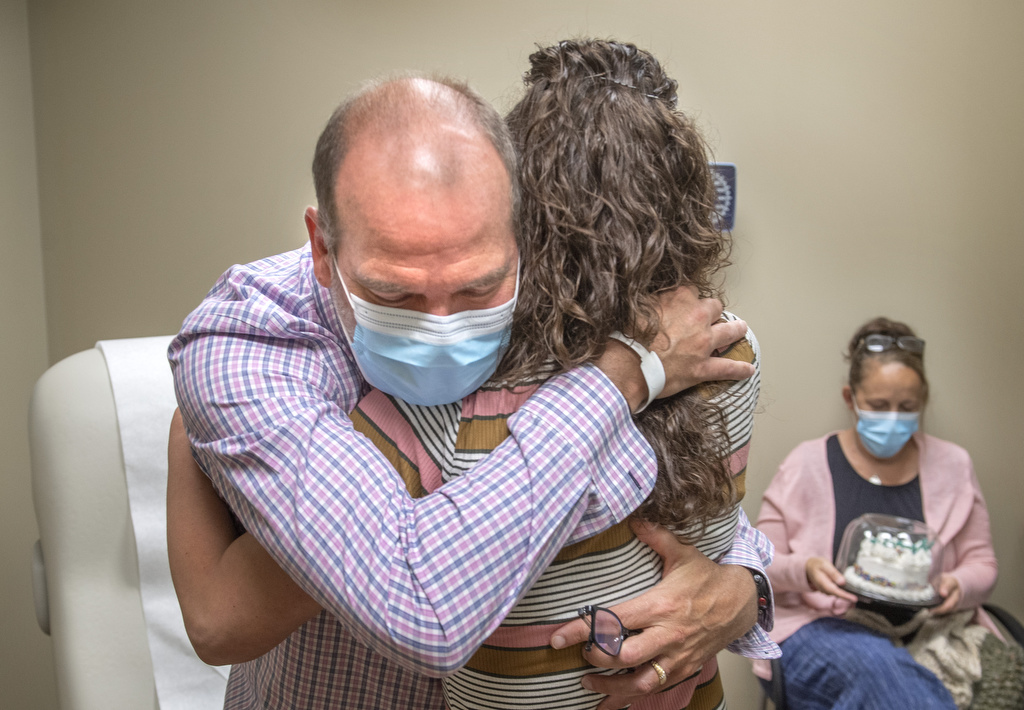

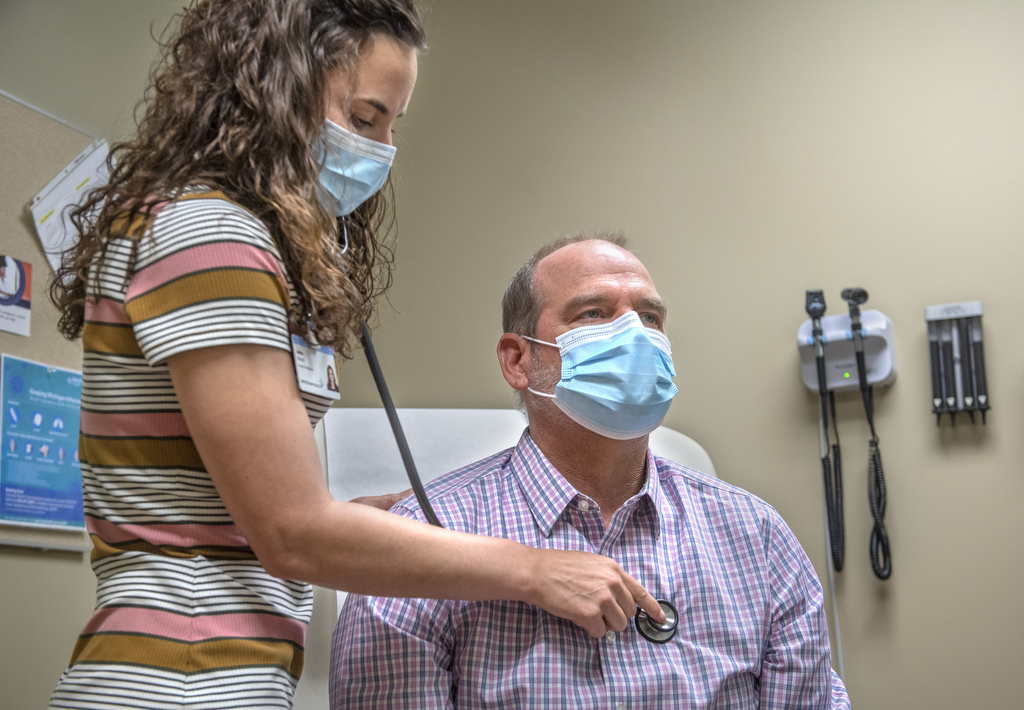

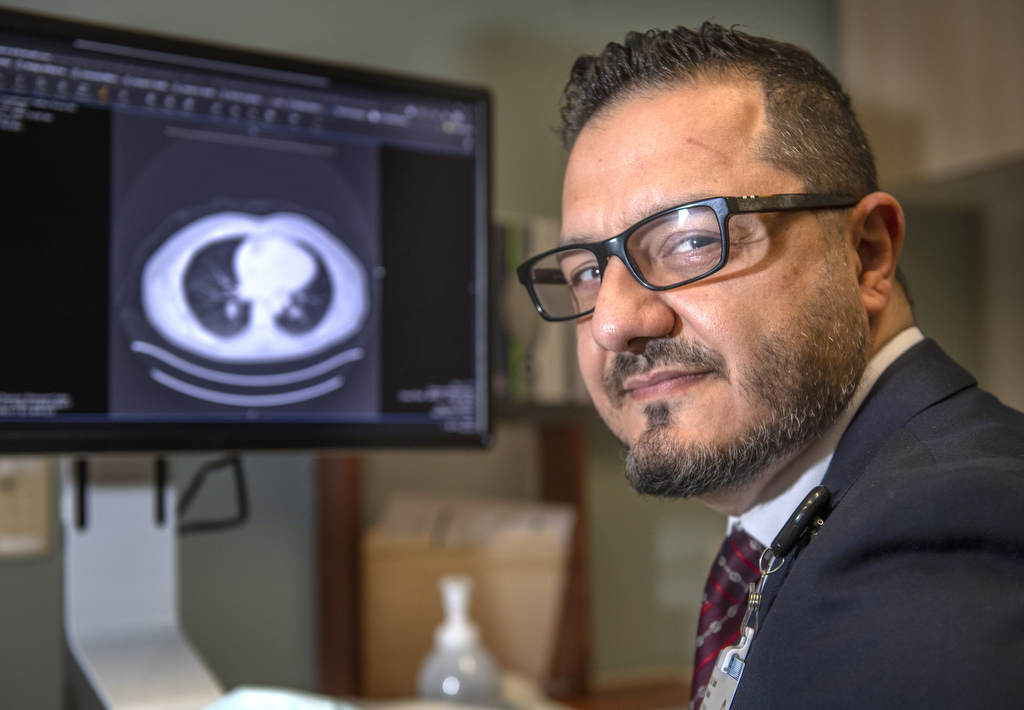

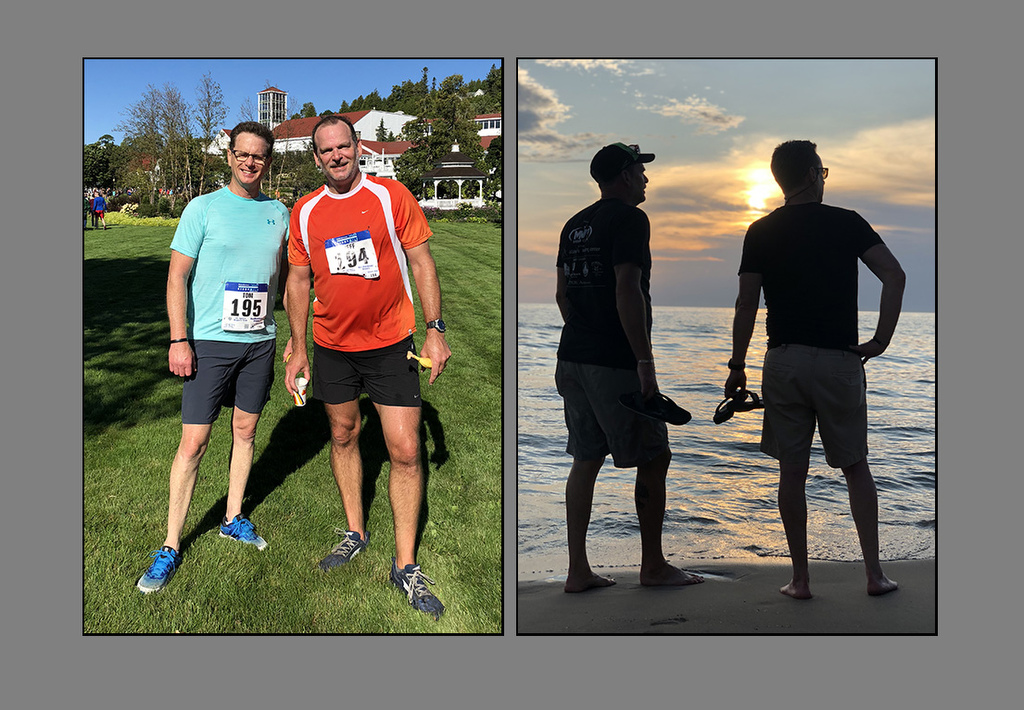
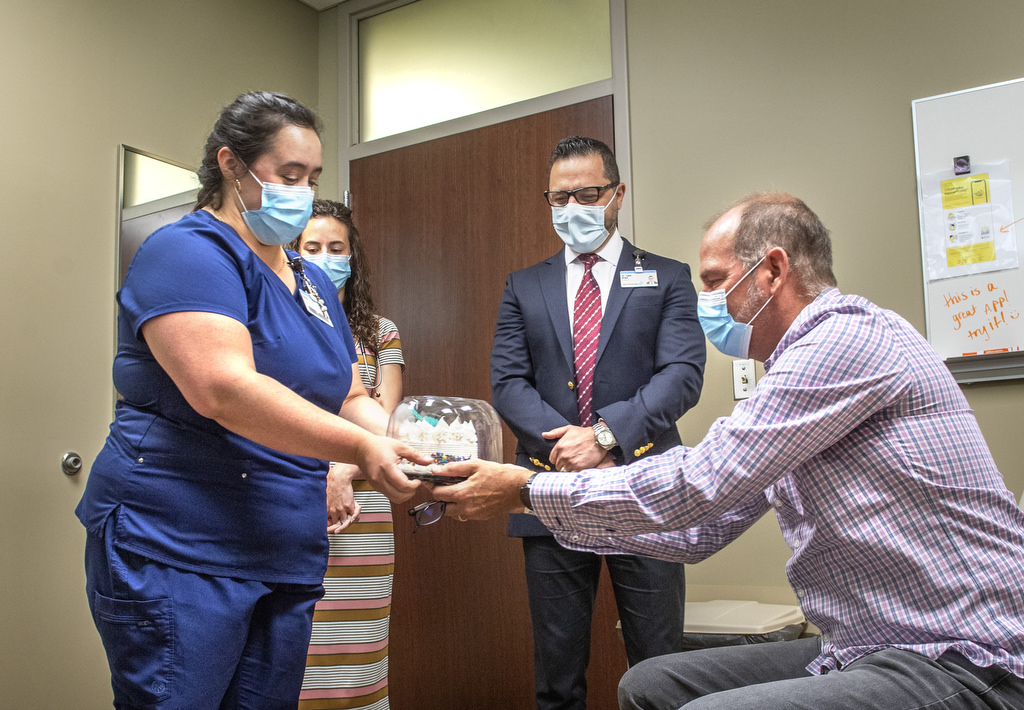

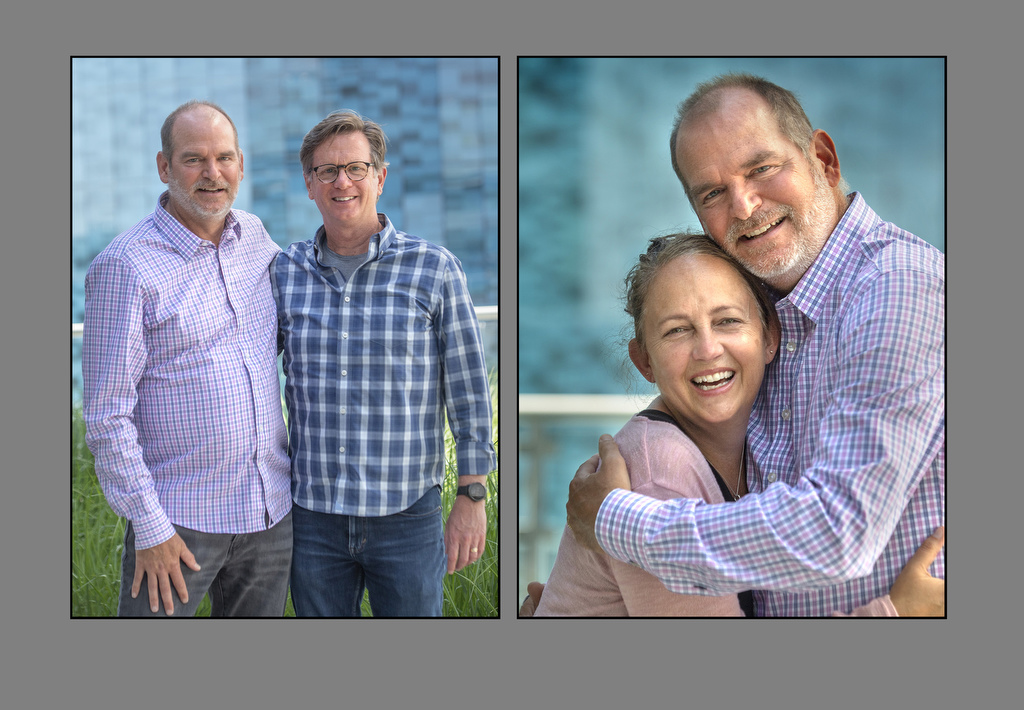
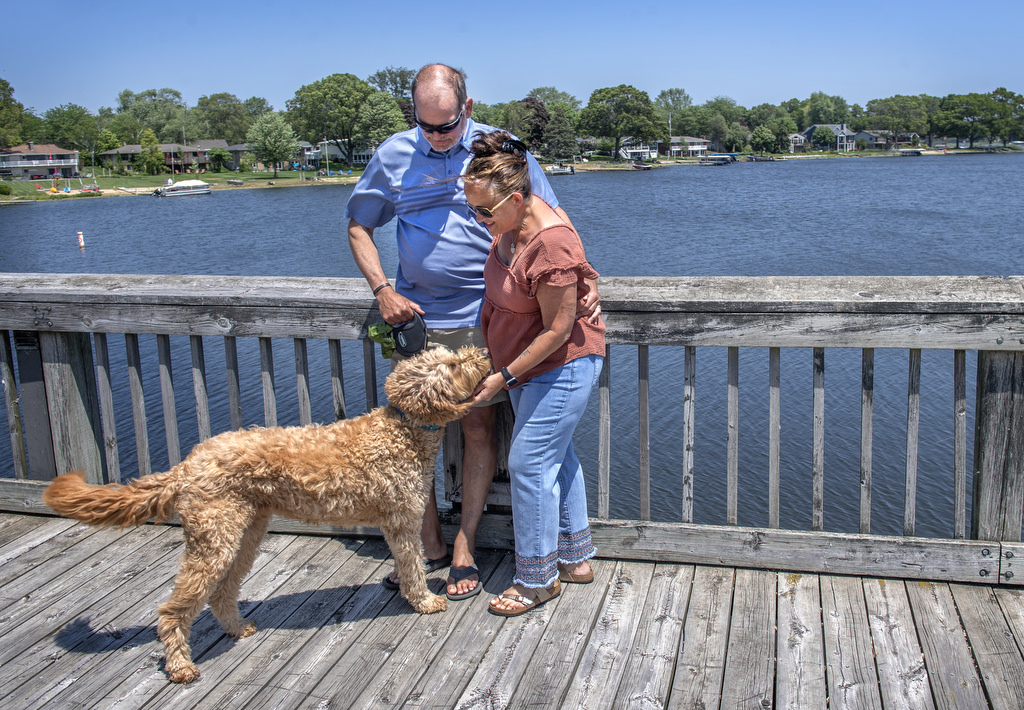
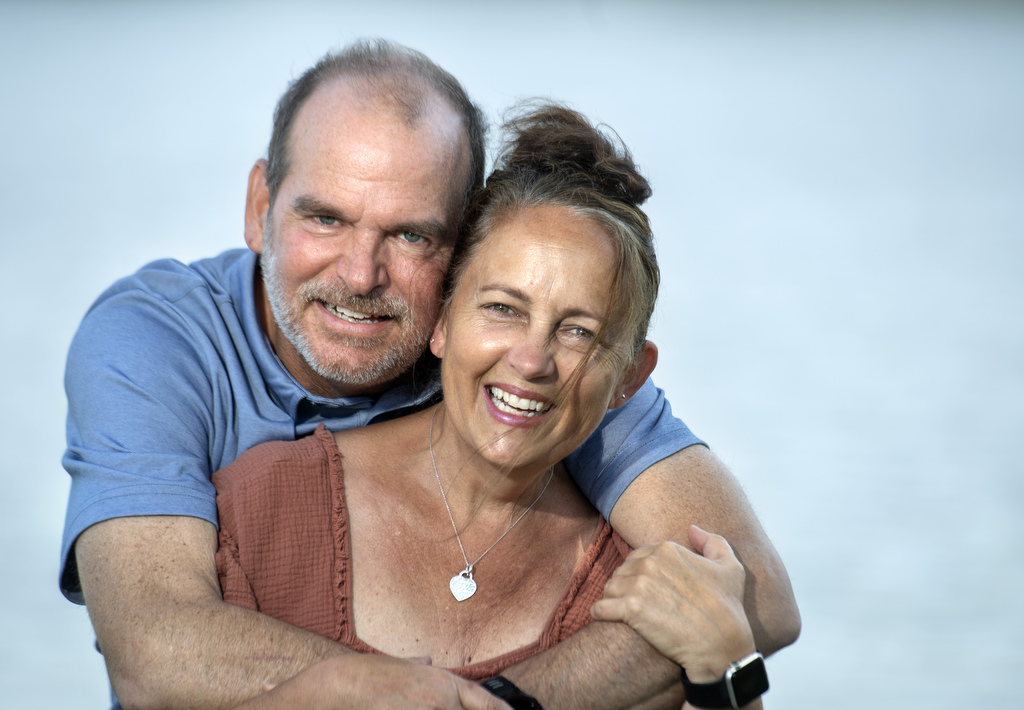
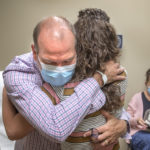

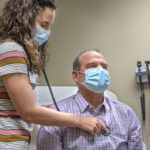
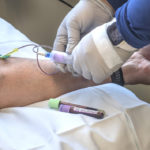
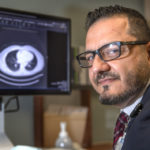
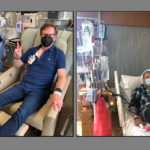






 /a>
/a>
 /a>
/a>
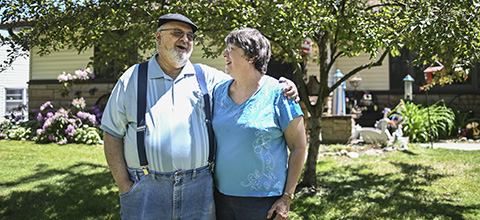 /a>
/a>
So happy this worked for you. My husband was a stem cell donor for his 46 year old sister 20 years ago and she developed Graph verses Host disease, passing away 5 months later.
I thank the Lord with you for your restored health.
I was so shocked to read this article regarding my previous co-worker and friend, Jeff (we worked together at Blodgett). I am SO relieved to hear that you have overcome the diagnosis and are back to enjoying life with Janet. You have been through some rough times for sure. We are blessed to have access to the care that we have here locally at Spectrum Health.